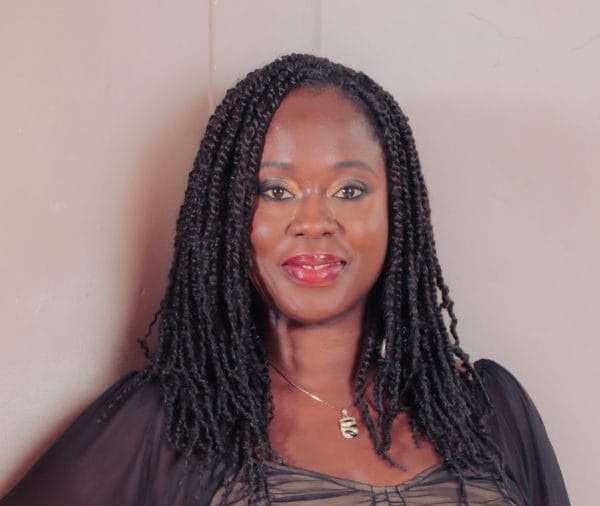Hyperemesis gravidarum (HG) is a severe form of nausea and vomiting during pregnancy that can have devastating consequences for both the expectant mother and her unborn child.
Jenny Okona-Mensah shares her story about battling with Hyperemesis and tragically losing her baby. We gain more insight into this deadly pregnancy condition, the toll it takes on sufferers and their partners or carers and we see one woman’s resolve to heal.
Hyperemesis turned my life upside down in ways that I had never imagined. While recovering from Ovarian Hyperstimulation Syndrome (OHSS), my world was hit with further devastation at what I had hoped would be one of the happiest times of my life. I experienced months of misery, trauma and relentless challenges during my pregnancy. I was pregnant, with hyperemesis during the lockdown of March 2020. I remember desperately praying to feel like I did before the debilitating onslaught of symptoms like constant vomiting, dizziness, acid reflux, dehydration, fatigue, anxiety and depression. I had no idea what this pregnancy would ask of me. Days turned into weeks and weeks turned into months of being unwell. I doubted I could go on. My reality of being pregnant was feeling isolated, unable to access support due to the lockdown and being bedridden for months on end. I was admitted to the hospital on ten separate occasions. All the pregnancy joy that I wished for, had been cruelly ripped away from me and my partner.
I had thought that becoming pregnant after 35 years old was the main challenge that my partner and I would need to overcome. However, hyperemesis had other plans for us. Here we were in the midst of a global pandemic and fate was set to turn our good fortune of getting pregnant to the pain and turmoil of losing our beloved baby girl.
During the repeated hospital admissions, I didn't know whether I was coming or going. I struggled to have any consistent relief from hyperemesis and was worried about how the constant stress of this would impact our baby. We were assured by doctors that with fluids, medication and resilience, all would be well as time went on. I was already grieving the idealised pregnancy that we are sold in the media and I did not get my fairy-tale ending. As if hyperemesis had not stolen enough from me, I ended up miscarrying our baby at 4 months.
"I had thought that becoming pregnant after 35 years old was the main challenge that my partner and I would need to overcome. However, hyperemesis had other plans for us. Here we were in the midst of a global pandemic and fate was set to turn our good fortune of getting pregnant to the pain and turmoil of losing our beloved baby girl."— Jenny Okona-Mensah
As with all grief, I went through a range of feelings and emotions. I descended deeply into what felt like going through the gate of no return. I was no longer pregnant yet the hyperemesis symptoms didn't disappear immediately. How cruel it was to finally have relief when it eventually came, but for all the wrong reasons.
My friends and family couldn't attend our baby's funeral. It was still lockdown and I had never felt so alone in all my life.
I experienced having my symptoms minimised and dismissed by medical staff. I was not the Duchess of Cambridge and when the medication stopped being effective, I was left with the misery of pregnancy sickness.
Medical staff should have been better at being empathetic and offering personalised treatment and care rather than the one size fits all approach that many dished out despite my appeals. I do not feel that I was taken seriously and each time I was admitted to the hospital it was after things had got so bad because they wanted to treat me as a textbook case rather than an individual. There needs to be more awareness and training around hyperemesis and pregnancy sickness for medical staff and the public. As a newly pregnant woman with no prior knowledge of hyperemesis, it is a more traumatic and shocking experience.
I was desperate for relief from my symptoms and tried multiple medications. I eventually surrendered to the loss and grief and had therapy to support my mental health and cope with the isolation. Without all these supports, it would have been much darker and heavier to carry on my own. Thankfully, my partner was my rock at this time and nursed me throughout the pregnancy.
"Medical staff should have been better at being empathetic and offering personalised treatment and care rather than the one size fits all approach that many dished out despite my appeals. I do not feel that I was taken seriously and each time I was admitted to the hospital it was after things had got so bad because they wanted to treat me as a textbook case rather than an individual. There needs to be more awareness and training around hyperemesis and pregnancy sickness for medical staff and the public. As a newly pregnant woman with no prior knowledge of hyperemesis, it is a more traumatic and shocking experience."
As a therapist myself, I have been able to use my experience of trauma to support my clients through their dark nights of the soul.
Today, I am grateful for coming through that devastating time. I am hopeful that pregnancy can be a positive and healthy experience with the right support. To empower people, I am passionate about raising awareness about hyperemesis, pregnancy sickness, reproductive health and fertility issues.
I keep it moving by being compassionate about what I have been through. This allows me to be hopeful for the here and now and the future.
I have a fur baby, a two-and-a-half-year-old cat. My partner and I still want kids and we are hopeful that it will happen.
My experience has been life-affirming. It validated my sense of resilience and inner strength. I would advise others to allow themselves to be vulnerable and reach out for support, and to seek advocates and peers to help them through their experiences. We don't always have to be strong. We deserve support and don't have to do it alone when we are going through challenging times.
Medical professionals can educate themselves on what additional support is available for hyperemesis sufferers so they can better support the women that they care for. If they don't fully understand the condition and the impact that it has on many pregnant women, then there is clearly a learning gap and a need for training. As a patient, when you feel listened to and cared for, this improves your experience. One of the worst things that medical professionals do is not appreciating that patients understand their bodies and have insight and knowledge as to what helps them, what works for them and what they need. Listen to us - patients, we have our own expertise that should be properly considered in our treatment and care.





Member discussion